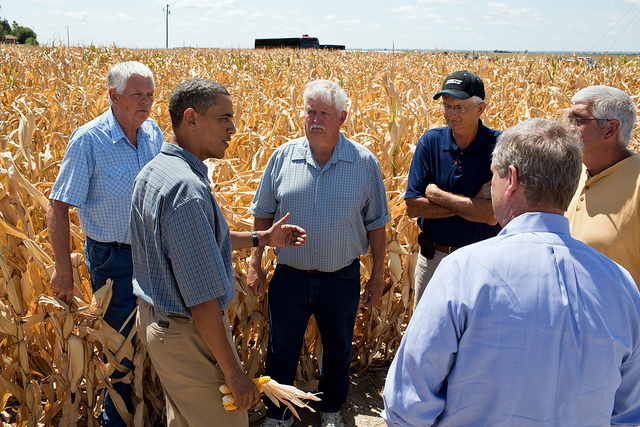The Obama Administration is getting desperate as it clamors for reasons to push comprehensive immigration reform.
U.S. Department of Agriculture (USDA) Secretary Tom Vilsack claims that without immigration reform, farms won’t be as productive as they could be, and they are thinking about moving operations outside the country, according to a recent Politico story:
If it [immigration reform] somehow doesn’t happen, then what’s going to happen is what’s already happening, which is people are going to make decisions…based on the risk of not having a workforce and they’re going to scale back their operations and that’s going to mean less opportunity for jobs, less [agricultural] exports and less income.
This is consistent with statements he has made before.
Yet some facts, many of which were highlighted the by the USDA the same day Vilsack made these remarks, tell a different story:
- Farm output. “The level of U.S. farm output more than doubled between 1948 and 2011” (USDA).
- Productivity. To evaluate productivity, the USDA uses annual productivity growth, which measures “the efficiency with which inputs are transformed into outputs.” According to the USDA: “Cumulated over the full 63 year period [1948–2011], this average annual rate (compounded annually) implies that farm sector productivity in 2011 was 145 percent above its 1948 level.”
- Exports. U.S. agricultural exports are at record levels, estimated at $142.6 billion for fiscal 2014. This is $1.5 billion higher than the previous record level in FY 2013 (USDA).
- Net farm income. “After adjusting for inflation, 2013’s net farm income is expected to be the highest since 1973.” Even though 2014 is projected to be lower than 2013, the USDA still explains, “In comparison [to 2013], the 2014 net farm income forecast would be the seventh highest” (USDA).
- Debt. “Aggregate farm debt, measured as a percent of total farm assets, is forecast at 10.5 percent, the lowest level since ERS [USDA’s Economic Research Service] began calculating the measure in 1960” (USDA).
This doesn’t sound like the agriculture sector should be too eager to leave the U.S.
If there’s a concern with agriculture output, the Administration shouldn’t have supported a nearly $1 trillion farm bill that limits the supply of commodities, such as through marketing orders (government-authorized cartels of producers) and the sugar program.
If anything, we should be worried about the costly implications of subsidies and central planning policies and how they may drive companies, such as confectioners, out of the country.
A sensible discussion on the narrow issue of reforming the guest worker program does make sense. However, scare tactics about agriculture “leaving town” without immigration reform is just laughable.




























